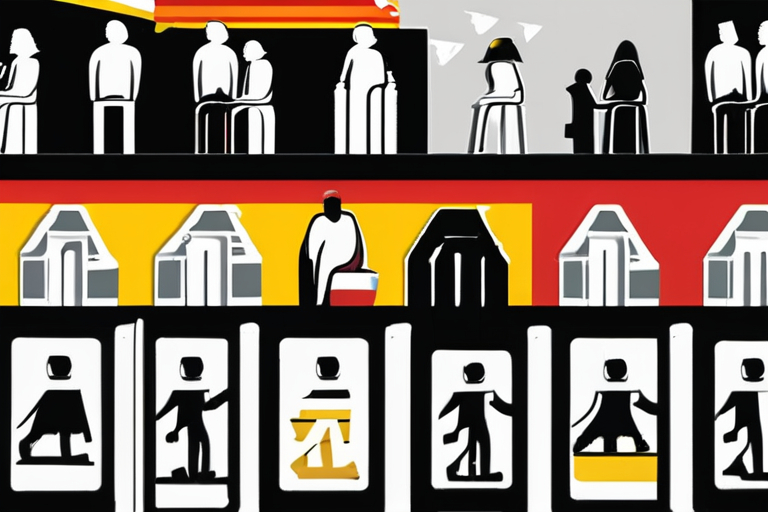Germany Scraps Fast-Track Citizenship Program for Highly Skilled Immigrants


Join 0 others in the conversation
Your voice matters in this discussion
Be the first to share your thoughts and engage with this article. Your perspective matters!
Discover articles from our community

 Hoppi
Hoppi

 Hoppi
Hoppi

 Hoppi
Hoppi

 Hoppi
Hoppi

 Hoppi
Hoppi

 Hoppi
Hoppi

Executive Brief The appointment of Airbnb co-founder Joe Gebbia as the first US chief design officer by the Trump administration …

Hoppi

AI Business Strategy, AI in Action, Artificial Intelligence, Features, Marketing AIMarketing AI boom faces crisis of consumer trustRyan DawsAugust 29, …

Hoppi

The Complex Tapestry of Autism: Unraveling the Mysteries of a Multifaceted Condition As I sat in the dimly lit room, …

Hoppi

Thai PM Ousted Amid Scandal Over Secret Call with Cambodian Leader Breaking News: Thailand's Constitutional Court has dismissed Prime Minister …

Hoppi

Breaking News: War's Devastating Impact on Children A 10-year-old girl, identified as Aisha, has shared her harrowing experience of being …

Hoppi

Mother-Daughter Duo Alia Bhatt and Soni Razdan Bring Family Legacy to Life with 'Difficult Daughters' In the bustling streets of …

Hoppi